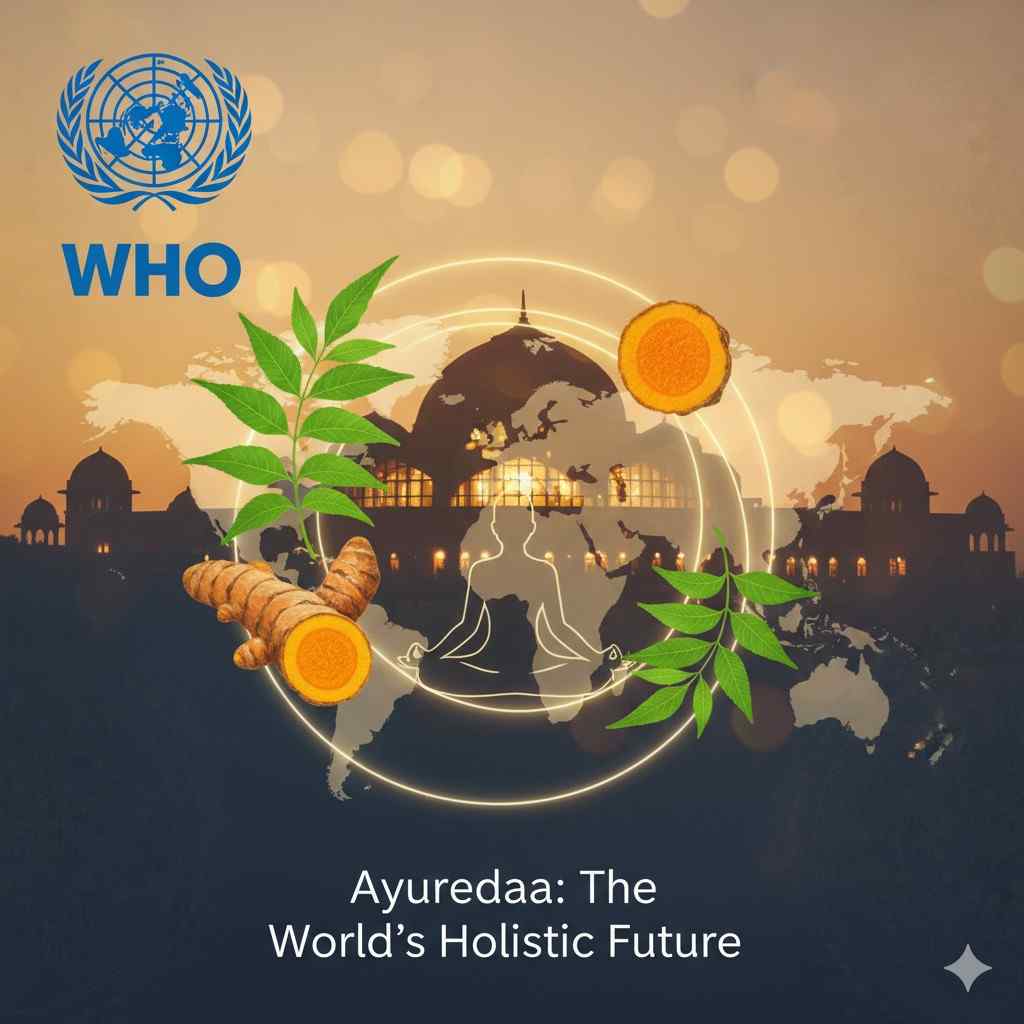Great Health Great Fitness
Global Embrace of Ayurveda: Over 150 Nations Officially Recognize Its Healing Potential

In an unprecedented global shift toward natural and preventive healthcare, Ayurveda—India’s 5,000-year-old system of holistic healing—has earned formal recognition in more than 150 countries worldwide. What was once seen as an ancient Indian tradition is now being acknowledged as a comprehensive approach to health, balance, and well-being that resonates deeply with modern lifestyles overwhelmed by stress, pollution, and chronic diseases.
The world’s growing fascination with Ayurveda comes at a time when conventional medicine, despite its advancements, struggles to offer sustainable solutions for lifestyle-related disorders. Ayurveda’s foundation lies in harmony—between body, mind, and spirit—and this timeless wisdom is proving more relevant than ever in today’s health landscape.
🌿 A Global Shift Toward Holistic Healing
Across the globe, people are increasingly turning to Ayurvedic principles to manage issues like anxiety, obesity, insomnia, digestive disorders, and metabolic syndromes. In the United States and Europe, wellness centers are blending Ayurveda with modern spa therapies, offering treatments based on dosha balancing, detoxification, and stress relief. Major cities like London, New York, and Berlin now host certified Ayurvedic clinics where personalized consultations, herbal remedies, and yoga-based therapies attract thousands each year.
In the United Kingdom, Ayurveda has found official support within the National Health Service’s (NHS) complementary health framework. In Germany, Ayurvedic medicine is now a certified profession, with specialized centers in Munich and Berlin offering treatments under medical supervision. Canada and Australia have also introduced Ayurvedic education programs and practitioner licensing, indicating long-term commitment to this ancient system.
🌏 The Role of WHO and India’s Global Influence
The World Health Organization (WHO) has played a pivotal role in this transformation. In collaboration with the Indian government, WHO established the Global Centre for Traditional Medicine in Jamnagar, Gujarat, which serves as a hub for scientific research and evidence-based validation of Ayurveda and other traditional healing systems. This global center aims to standardize Ayurvedic practices and ensure that its benefits reach people across continents in a safe and authentic way.
India, the birthplace of Ayurveda, continues to be the driving force behind this global expansion. The Ministry of AYUSH (Ayurveda, Yoga, Unani, Siddha, and Homeopathy) has signed memorandums of understanding with over 30 nations, promoting the integration of Ayurvedic education, research, and product trade. Ayurvedic tourism in India has surged, with destinations like Kerala, Rishikesh, and Goa becoming wellness hotspots for international visitors seeking natural therapies for rejuvenation, detox, and healing.
💊 Ayurveda Meets Modern Science
One of the most promising aspects of Ayurveda’s global rise is the fusion of traditional knowledge with modern science. Pharmaceutical and biotech companies in Europe, Japan, and the U.S. are investing in Ayurvedic research to isolate bioactive compounds from herbs like Ashwagandha, Turmeric, and Brahmi. These studies aim to create standardized, clinically validated medicines inspired by Ayurvedic wisdom.
Universities such as Harvard, Oxford, and Tokyo University have initiated joint research programs to evaluate Ayurvedic practices in disease prevention and management. Several studies have shown positive results, especially in managing arthritis, diabetes, anxiety, and gut health. Ayurveda’s preventive focus—through diet, daily routines (Dinacharya), and seasonal adjustments (Ritucharya)—is now being recognized as a sustainable approach to healthcare economics.
🌺 A Growing Global Market
The global Ayurveda industry, valued at over USD 10 billion in 2025, is expected to grow at an annual rate of 15–18%. This boom is fueled by increasing demand for herbal supplements, natural cosmetics, and organic wellness products. Major brands such as Himalaya, Dabur, Patanjali, and Forest Essentials are exporting Ayurvedic goods to over 100 countries.
Wellness tourism is another thriving sector. Ayurvedic resorts in Sri Lanka, Thailand, and Bali are integrating Indian Ayurvedic methods into luxury wellness retreats, attracting high-end clientele seeking personalized detox and rejuvenation programs. In the U.S., Ayurvedic retreats are now being marketed as “digital detox centers,” helping professionals escape burnout and rediscover balance.
🧘 Ayurveda in Everyday Life
Beyond the commercial and institutional growth, Ayurveda’s philosophy is influencing how people live. Millions now practice daily rituals such as oil pulling, tongue scraping, and herbal tea detoxes. The concepts of mindfulness, clean eating, and body-mind balance—which dominate today’s health trends—are deeply rooted in Ayurvedic wisdom. Even major fitness and health influencers now advocate Ayurvedic lifestyles over extreme diets or synthetic supplements.
🌱 The Future of Global Health Is Ancient
As the world battles modern health crises—ranging from mental health issues to chronic inflammation—Ayurveda offers a comprehensive, time-tested, and nature-aligned path forward. Its holistic model not only treats symptoms but also addresses the root causes of disease through lifestyle correction, herbal therapy, and inner balance.
Experts believe that the 21st century will witness a global integration of Ayurveda with modern medicine, creating a new model of healthcare—one that is preventive, personalized, and deeply human. With over 150 countries now officially recognizing Ayurveda, its timeless message is clear: true health lies not in treatment alone, but in harmony with oneself and nature.
Ayurveda has transcended borders, languages, and cultures—emerging as a guiding light for global well-being, and reaffirming India’s ancient wisdom as a gift to the world.
